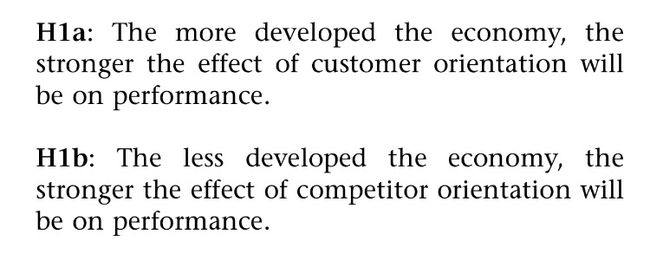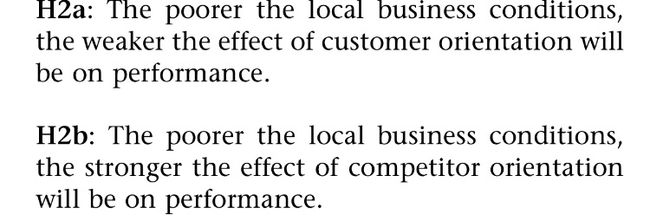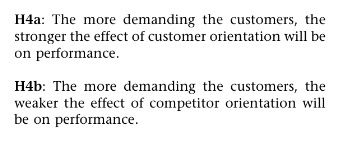- git常用命令笔记
咩酱-小羊
git笔记
###用习惯了idea总是不记得git的一些常见命令,需要用到的时候总是担心旁边站了人~~~记个笔记@_@,告诉自己看笔记不丢人初始化初始化一个新的Git仓库gitinit配置配置用户信息gitconfig--globaluser.name"YourName"gitconfig--globaluser.email"
[email protected]"基本操作克隆远程仓库gitclone查看
- 01-Git初识
Meereen
Gitgit
01-Git初识概念:一个免费开源,分布式的代码版本控制系统,帮助开发团队维护代码作用:记录代码内容。切换代码版本,多人开发时高效合并代码内容如何学:个人本机使用:Git基础命令和概念多人共享使用:团队开发同一个项目的代码版本管理Git配置用户信息配置:用户名和邮箱,应用在每次提交代码版本时表明自己的身份命令:查看git版本号git-v配置用户名gitconfig--globaluser.name
- MongoDB知识概括
GeorgeLin98
持久层mongodb
MongoDB知识概括MongoDB相关概念单机部署基本常用命令索引-IndexSpirngDataMongoDB集成副本集分片集群安全认证MongoDB相关概念业务应用场景:传统的关系型数据库(如MySQL),在数据操作的“三高”需求以及应对Web2.0的网站需求面前,显得力不从心。解释:“三高”需求:①Highperformance-对数据库高并发读写的需求。②HugeStorage-对海量数
- uniapp 获取各种小程序code
灵魂清零
uniapp小程序
各种小程序在进入小程序是都需要去获取code才能拿到基础信息,自己记录一下用uniapp开发小程序是获取微信小程序、百度小程序、头条小程序、支付宝小程序的codeVue.prototype.$global={appLogin(){returnnewPromise((resole,reject)=>{varthat=this;varwxLoginUrl=app.globalData.url+"/lo
- 如何运用SCRM系统做好客户管理?
腾迹
bigdata产品运营大数据
随着互联网的更新迭代发展,大部分的企业都是有在应用SCRM系统来进行客户关系管理,丰富、完善用户标签,从而更加了解消费者所需要的产品和服务。SCRM的全称是SocialCustomerRelationshipManagement,是社会化客户关系管理的简称,主打的是以客户互动为中心,增加参与体验、互动了解,创造双向价值的工具。SCRM更加以消费者为中心,并且重点关注充分发挥每个消费者的社交价值,实
- CesiumJS+SuperMap3D.js混用实现可视域分析 S3M图层加载 裁剪区域绘制
SteveJi666
WebGLcesiumEarthSDKSuperMap3djavascript前端arcgis
版本简介:cesium:1.99;Supermap3D:SuperMapiClientJavaScript11i(2023);官方下载文档链家:SuperMap技术资源中心|为您提供全面的在线技术服务示例参考:support.supermap.com.cn:8090/webgl/Cesium/examples/webgl/examples.html#analysissupport.supermap
- CesiumJS+SuperMap3D.js混用实现通视分析
SteveJi666
WebGLcesiumEarthSDKSuperMap3djavascript前端arcgis
版本简介:cesium:1.99;Supermap3D:SuperMapiClientJavaScript11i(2023);官方下载文档链家:SuperMap技术资源中心|为您提供全面的在线技术服务示例参考:support.supermap.com.cn:8090/webgl/Cesium/examples/webgl/examples.html#analysissupport.supermap
- pnpm解說
白总Server
服务器kubernetes网络运维云原生pythonjava
pnpm(PerformanceNodePackageManager)是一个高性能的Node.js包管理器,它旨在解决npm和yarn在处理依赖关系时可能遇到的一些问题,如重复安装相同版本的包、包的存储空间占用过大等。pnpm使用了一种称为“硬链接”和“符号链接”的文件系统技术,这使得它能够以更高效的方式存储和管理依赖项。关键特点:高效存储:pnpm使用一种称为内容可寻址存储(ContentAdd
- FPGA随记——赛灵思OOC功能
一口一口吃成大V
FPGA随记fpga开发
在这里,我们简要介绍一下Vivado的OOC(Out-of-Context)综合的概念。对于顶层设计,Vivado使用自顶向下的全局(Global)综合方式,将顶层之下的所有逻辑模块都进行综合,但是设置为OOC方式的模块除外,它们独立于顶层设计而单独综合。通常,在整个设计周期中,顶层设计会被多次修改并综合。但有些子模块在创建完毕之后不会因为顶层设计的修改而被修改,如IP,它们被设置为OOC综合方式
- uniapp H5 关掉全部头部header
qq_39016177
uni-app
uniappH5关掉全部头部header1.进入pages.json文件"globalStyle":{//"navigationStyle":"custom","navigationBarTextStyle":"black","navigationBarTitleText":"","navigationBarBackgroundColor":"#F8F8F8","backgroundColor":
- SIPp常用脚本之三:UAC
weixin_34075551
网络
UAC是作为SIP消息的发起端,可以控制消息速率什么的,方便极了。一、uac.xml;tag=[call_number]To:Call-ID:[call_id]CSeq:1INVITEContact:sip:[field0]@[local_ip]:[local_port]Max-Forwards:70Subject:PerformanceTestContent-Type:application/s
- 概率潜在语义分析(Probabilistic Latent Semantic Analysis,PLSA)—无监督学习方法、概率模型、生成模型、共现模型、非线性模型、参数化模型、批量学习
剑海风云
ArtificialIntelligence人工智能机器学习概率潜在语义分析PLSA
定义输入:设单词集合为W={ω1,ω2,⋯ ,ωM}W=\{\omega_1,\omega_2,\cdots,\omega_M\}W={ω1,ω2,⋯,ωM},文本集合为D={d1,d2,⋯ ,dN}D=\{d_1,d_2,\cdots,d_N\}D={d1,d2,⋯,dN},话题集合为Z={z1,z2,⋯ ,zN}Z=\{z_1,z_2,\cdots,z_N\}Z={z1,z2,⋯,zN},共现
- 怎么修改pip源
纬领网络
pippythonlinux
1.pipconfiglist命令用于列出当前pip的配置信息。pipconfiglist2.在全局配置中设置新的index-urlpipconfigsetglobal.index-urlhttps://pypi.tuna.tsinghua.edu.cn/simple3.如果你只想在当前项目中更改配置,你可以省略globalpipconfigsetindex-urlhttps://pypi.tun
- qt 创建随机数
入梦游
qt
qt中有两种创建随机数的方法,一种是旧方法,一种是新方法目录旧方法:已过时intqrand()voidqsrand(uintseed)Example新方法QRandomGenerator::global()->bouned(inthighest)QRandomGenerator::global()->generate()更多旧方法:已过时intqrand()生成一个伪随机数,可以使用qsrand(
- 算法设计与分析 合并排序的递归实现算法
Jxcupupup
算法算法算法设计与分析
合并排序的递归实现算法。输入:先输入进行合并排序元素的个数,然后依次随机输入(或随机生成)每个数字。输出:元素排序后的结果,数字之间不加任何标识符。示//完整代码在GitHub上//https://github.com/Jxcup/Course_Algorithm_Analysis-Design/blob/main/MergeSort_iteration.cpp//合并排序递归#includeus
- linux git log 中文乱码,修复git diff正文中文乱码
weixin_39945871
Linuxgitdiff正文中文乱码在命令行下输入以下命令:$gitconfig--globalcore.quotepathfalse#显示status编码$gitconfig--globalgui.encodingutf-8#图形界面编码$gitconfig--globali18n.commit.encodingutf-8#提交信息编码$gitconfig--globali18n.logoutp
- git log 中文乱码解决(完整版)
ferryCoder
gitlinuxcentoswindow
gitconfig--globalcore.quotepathfalsegitconfig--globalgui.encodingutf-8gitconfig--globali18n.commit.encodingutf-8gitconfig--globali18n.logoutputencodingutf-8#bash环境下(临时生效):exportLESSCHARSET=utf-8#cmd环境
- AI学习笔记:pdf-document-layout-analysis
hillstream3
人工智能学习笔记pdfAI编程nlp
一直在学AI,但没有连续的时间来尝试。现在终于失业了,有大把连续的时间来动手。之前准备了一台I5-1400F+RTX360012G的电脑,现在终于派上用场了。由于一直在从事无线通信相关的工作,所以,拿到一份很长的AI可能与通信在哪些方面,能够结合的pdf文档。所以,打算从这份文档开始入手。第一个找到的项目的是这个:https://huggingface.co/HURIDOCS/pdf-docume
- 应用Visual Studio Profiler分析CPU使用情况
Rverdoser
windows
使用VisualStudioProfiler分析CPU使用情况的步骤如下:1.启动CPU分析:在VisualStudio中打开你要分析的项目。在菜单栏中选择Debug>PerformanceProfiler,或者使用快捷键Alt+F2。在性能分析工具窗口中,选择CPUUsage选项,这将帮助你分析应用程序的CPU使用情况。2.运行CPU分析选择CPUUsage后,点击Start按钮。Vi
- 线性判别分析 (Linear Discriminant Analysis, LDA)
ALGORITHM LOL
人工智能机器学习算法
线性判别分析(LinearDiscriminantAnalysis,LDA)通俗易懂算法线性判别分析(LinearDiscriminantAnalysis,LDA)是一种用于分类和降维的技术。其主要目的是找到一个线性变换,将数据投影到一个低维空间,使得在这个新空间中,不同类别的数据能够更好地分离。线性判别分析的核心思想LDA的基本思路是最大化类间方差(between-classvariance)与
- 3.pm2 承载 BlazorServer程序
蜘蛛网络视频
1.安装pm2#npmnpminstallpm2@latest-g#yarnyarnglobaladdpm2查看pm2信息image.png进入程序目录运行命令pm2start--nameBlazorApp6dotnet--/home/lzj/publish/BlazorApp6.dllimage.png查看监控信息m2monitimage.png常用命令//托管程序pm2start--namex
- 【iOS】GCD详解
cheng_lin0201
OCiOSiosobjective-c
初识GCD深入理解GrandCentralDispatch(GCD):iOS多线程编程的利器前言1.GCD简介1.1什么是GCD?1.2为什么使用GCD?2.GCD的核心概念2.1任务与队列2.2串行队列与并发队列3.GCD的API3.1DispatchQueue3.2dispatch_queue_create3.3MainDispatchQueue&GlobalDispatchQueue3.4d
- 404 error when doing workload anlysis using locust on OpenAI API (GPT.35)
营赢盈英
AI人工智能pythonopenailocust
题意:"使用Locust对OpenAIAPI(GPT-3.5)进行工作负载分析时出现404错误。"问题背景:IamtryingtodosomeworkloadanalysisonOpenAIGPT-3.5-TURBOusinglocust."我正在使用Locust对OpenAIGPT-3.5-TURBO进行一些工作负载分析。"fromlocustimportHttpUser,between,tas
- 打卡第13天:《利用python进行数据分析》学习笔记
且不了了
第7章——数据规整化:清理、转换、合并、重塑数据变换http://nbviewer.jupyter.org/github/qiebuliaoliao/data_analysis_python/blob/master/ch7/20180405.ipynb
- php工程师绩效考核表_如何对程序员绩效考核?
weixin_39637233
php工程师绩效考核表
如何对程序员绩效考核?1、什么是绩效考核?来在百度百科的解释,绩效考核(performanceexamine),是企业绩效管理中的一个环节,是指考核主体对照工作目标和绩效标准,采用科学的考核方式,评定员工的工作任务完成情况、员工的工作职责履行程度和员工的发展情况,并且将评定结果反馈给员工的过程。常见绩效考核方法包括BSC、KPI及360度考核等。绩效考核是一项系统工程。2、绩效考核是否有用?对企业
- 如何配置公钥
null or notnull
gitee
首次配置公鑰:1.配置Git用户名和邮箱。gitconfig--globaluser.name"ligdssa"gitconfig--globaluser.email"
[email protected]"2.查看是否配置成功gitconfig--list3.生成创建SSH公钥C:\Users\用户文件夹\.ssh如果这文件夹中有文件,需要先删除(1).执行:ssh-keygen-ted25519-C"Gite
- Linux基础入门 --10 DAY
安红豆.
Linux学习linux运维服务器
文本常见处理工具文件内容查看命令cat格式:cat[OPTION]...[FILE]...常见选项:-E:显示行结束符-A:显示所有控制符-n:对显示出的每一行进行编号-b:对非空行进行编号-s:压缩连续的空行成一行范例:[root@localhost~]#cat-A-nmyasm.s1.section.text$2.global_start$3$4_start:$5^Imovr0,#1$6^Ia
- [Kaiming]Delving Deep into Rectifiers: Surpassing Human-Level Performance on ImageNet Classification
MTandHJ
neuralnetworks
文章目录概主要内容PReLUKaiming初始化ForwardcaseBackwardcaseHeK,ZhangX,RenS,etal.DelvingDeepintoRectifiers:SurpassingHuman-LevelPerformanceonImageNetClassification[C].internationalconferenceoncomputervision,2015:1
- QT chart案例
quaer
QTqtswift开发语言
examples-zoomlinechart.qdocZoomLineExample|QtCharts5.15.2Qt5.15QtChartsZoomLineExampleQtCharts|CommercialorGPLv3ContentsRunningtheExampleCustomizingZoomingEffectsZoomLineExample$$$zoomlinechart-briefT
- 实战项目:俄罗斯方块(七)
小珑也要变强
开发语言c语言物联网
文章目录自我介绍图形存储及输出设置类型设计图形输出代码设计要实现的结果展示user_global.c(全局变量的C文件)user_print.huser_print.cmain.c你的点赞评论就是对博主最大的鼓励当然喜欢的小伙伴可以:点赞+关注+评论+收藏(一键四连)哦~自我介绍 Hello,大家好,我是小珑也要变强(也是小珑),我是易编程·终身成长社群的一名“创始团队·嘉宾”和“内容共创官”,
- Spring4.1新特性——综述
jinnianshilongnian
spring 4.1
目录
Spring4.1新特性——综述
Spring4.1新特性——Spring核心部分及其他
Spring4.1新特性——Spring缓存框架增强
Spring4.1新特性——异步调用和事件机制的异常处理
Spring4.1新特性——数据库集成测试脚本初始化
Spring4.1新特性——Spring MVC增强
Spring4.1新特性——页面自动化测试框架Spring MVC T
- Schema与数据类型优化
annan211
数据结构mysql
目前商城的数据库设计真是一塌糊涂,表堆叠让人不忍直视,无脑的架构师,说了也不听。
在数据库设计之初,就应该仔细揣摩可能会有哪些查询,有没有更复杂的查询,而不是仅仅突出
很表面的业务需求,这样做会让你的数据库性能成倍提高,当然,丑陋的架构师是不会这样去考虑问题的。
选择优化的数据类型
1 更小的通常更好
更小的数据类型通常更快,因为他们占用更少的磁盘、内存和cpu缓存,
- 第一节 HTML概要学习
chenke
htmlWebcss
第一节 HTML概要学习
1. 什么是HTML
HTML是英文Hyper Text Mark-up Language(超文本标记语言)的缩写,它规定了自己的语法规则,用来表示比“文本”更丰富的意义,比如图片,表格,链接等。浏览器(IE,FireFox等)软件知道HTML语言的语法,可以用来查看HTML文档。目前互联网上的绝大部分网页都是使用HTML编写的。
打开记事本 输入一下内
- MyEclipse里部分习惯的更改
Array_06
eclipse
继续补充中----------------------
1.更改自己合适快捷键windows-->prefences-->java-->editor-->Content Assist-->
Activation triggers for java的右侧“.”就可以改变常用的快捷键
选中 Text
- 近一个月的面试总结
cugfy
面试
本文是在学习中的总结,欢迎转载但请注明出处:http://blog.csdn.net/pistolove/article/details/46753275
前言
打算换个工作,近一个月面试了不少的公司,下面将一些面试经验和思考分享给大家。另外校招也快要开始了,为在校的学生提供一些经验供参考,希望都能找到满意的工作。
- HTML5一个小迷宫游戏
357029540
html5
通过《HTML5游戏开发》摘抄了一个小迷宫游戏,感觉还不错,可以画画,写字,把摘抄的代码放上来分享下,喜欢的同学可以拿来玩玩!
<html>
<head>
<title>创建运行迷宫</title>
<script type="text/javascript"
- 10步教你上传githib数据
张亚雄
git
官方的教学还有其他博客里教的都是给懂的人说得,对已我们这样对我大菜鸟只能这么来锻炼,下面先不玩什么深奥的,先暂时用着10步干净利索。等玩顺溜了再用其他的方法。
操作过程(查看本目录下有哪些文件NO.1)ls
(跳转到子目录NO.2)cd+空格+目录
(继续NO.3)ls
(匹配到子目录NO.4)cd+ 目录首写字母+tab键+(首写字母“直到你所用文件根就不再按TAB键了”)
(查看文件
- MongoDB常用操作命令大全
adminjun
mongodb操作命令
成功启动MongoDB后,再打开一个命令行窗口输入mongo,就可以进行数据库的一些操作。输入help可以看到基本操作命令,只是MongoDB没有创建数据库的命令,但有类似的命令 如:如果你想创建一个“myTest”的数据库,先运行use myTest命令,之后就做一些操作(如:db.createCollection('user')),这样就可以创建一个名叫“myTest”的数据库。
一
- bat调用jar包并传入多个参数
aijuans
下面的主程序是通过eclipse写的:
1.在Main函数接收bat文件传递的参数(String[] args)
如: String ip =args[0]; String user=args[1]; &nbs
- Java中对类的主动引用和被动引用
ayaoxinchao
java主动引用对类的引用被动引用类初始化
在Java代码中,有些类看上去初始化了,但其实没有。例如定义一定长度某一类型的数组,看上去数组中所有的元素已经被初始化,实际上一个都没有。对于类的初始化,虚拟机规范严格规定了只有对该类进行主动引用时,才会触发。而除此之外的所有引用方式称之为对类的被动引用,不会触发类的初始化。虚拟机规范严格地规定了有且仅有四种情况是对类的主动引用,即必须立即对类进行初始化。四种情况如下:1.遇到ne
- 导出数据库 提示 outfile disabled
BigBird2012
mysql
在windows控制台下,登陆mysql,备份数据库:
mysql>mysqldump -u root -p test test > D:\test.sql
使用命令 mysqldump 格式如下: mysqldump -u root -p *** DBNAME > E:\\test.sql。
注意:执行该命令的时候不要进入mysql的控制台再使用,这样会报
- Javascript 中的 && 和 ||
bijian1013
JavaScript&&||
准备两个对象用于下面的讨论
var alice = {
name: "alice",
toString: function () {
return this.name;
}
}
var smith = {
name: "smith",
- [Zookeeper学习笔记之四]Zookeeper Client Library会话重建
bit1129
zookeeper
为了说明问题,先来看个简单的示例代码:
package com.tom.zookeeper.book;
import com.tom.Host;
import org.apache.zookeeper.WatchedEvent;
import org.apache.zookeeper.ZooKeeper;
import org.apache.zookeeper.Wat
- 【Scala十一】Scala核心五:case模式匹配
bit1129
scala
package spark.examples.scala.grammars.caseclasses
object CaseClass_Test00 {
def simpleMatch(arg: Any) = arg match {
case v: Int => "This is an Int"
case v: (Int, String)
- 运维的一些面试题
yuxianhua
linux
1、Linux挂载Winodws共享文件夹
mount -t cifs //1.1.1.254/ok /var/tmp/share/ -o username=administrator,password=yourpass
或
mount -t cifs -o username=xxx,password=xxxx //1.1.1.1/a /win
- Java lang包-Boolean
BrokenDreams
boolean
Boolean类是Java中基本类型boolean的包装类。这个类比较简单,直接看源代码吧。
public final class Boolean implements java.io.Serializable,
- 读《研磨设计模式》-代码笔记-命令模式-Command
bylijinnan
java设计模式
声明: 本文只为方便我个人查阅和理解,详细的分析以及源代码请移步 原作者的博客http://chjavach.iteye.com/
import java.util.ArrayList;
import java.util.Collection;
import java.util.List;
/**
* GOF 在《设计模式》一书中阐述命令模式的意图:“将一个请求封装
- matlab下GPU编程笔记
cherishLC
matlab
不多说,直接上代码
gpuDevice % 查看系统中的gpu,,其中的DeviceSupported会给出matlab支持的GPU个数。
g=gpuDevice(1); %会清空 GPU 1中的所有数据,,将GPU1 设为当前GPU
reset(g) %也可以清空GPU中数据。
a=1;
a=gpuArray(a); %将a从CPU移到GPU中
onGP
- SVN安装过程
crabdave
SVN
SVN安装过程
subversion-1.6.12
./configure --prefix=/usr/local/subversion --with-apxs=/usr/local/apache2/bin/apxs --with-apr=/usr/local/apr --with-apr-util=/usr/local/apr --with-openssl=/
- sql 行列转换
daizj
sql行列转换行转列列转行
行转列的思想是通过case when 来实现
列转行的思想是通过union all 来实现
下面具体例子:
假设有张学生成绩表(tb)如下:
Name Subject Result
张三 语文 74
张三 数学 83
张三 物理 93
李四 语文 74
李四 数学 84
李四 物理 94
*/
/*
想变成
姓名 &
- MySQL--主从配置
dcj3sjt126com
mysql
linux下的mysql主从配置: 说明:由于MySQL不同版本之间的(二进制日志)binlog格式可能会不一样,因此最好的搭配组合是Master的MySQL版本和Slave的版本相同或者更低, Master的版本肯定不能高于Slave版本。(版本向下兼容)
mysql1 : 192.168.100.1 //master mysq
- 关于yii 数据库添加新字段之后model类的修改
dcj3sjt126com
Model
rules:
array('新字段','safe','on'=>'search')
1、array('新字段', 'safe')//这个如果是要用户输入的话,要加一下,
2、array('新字段', 'numerical'),//如果是数字的话
3、array('新字段', 'length', 'max'=>100),//如果是文本
1、2、3适当的最少要加一条,新字段才会被
- sublime text3 中文乱码解决
dyy_gusi
Sublime Text
sublime text3中文乱码解决
原因:缺少转换为UTF-8的插件
目的:安装ConvertToUTF8插件包
第一步:安装能自动安装插件的插件,百度“Codecs33”,然后按照步骤可以得到以下一段代码:
import urllib.request,os,hashlib; h = 'eb2297e1a458f27d836c04bb0cbaf282' + 'd0e7a30980927
- 概念了解:CGI,FastCGI,PHP-CGI与PHP-FPM
geeksun
PHP
CGI
CGI全称是“公共网关接口”(Common Gateway Interface),HTTP服务器与你的或其它机器上的程序进行“交谈”的一种工具,其程序须运行在网络服务器上。
CGI可以用任何一种语言编写,只要这种语言具有标准输入、输出和环境变量。如php,perl,tcl等。 FastCGI
FastCGI像是一个常驻(long-live)型的CGI,它可以一直执行着,只要激活后,不
- Git push 报错 "error: failed to push some refs to " 解决
hongtoushizi
git
Git push 报错 "error: failed to push some refs to " .
此问题出现的原因是:由于远程仓库中代码版本与本地不一致冲突导致的。
由于我在第一次git pull --rebase 代码后,准备push的时候,有别人往线上又提交了代码。所以出现此问题。
解决方案:
1: git pull
2:
- 第四章 Lua模块开发
jinnianshilongnian
nginxlua
在实际开发中,不可能把所有代码写到一个大而全的lua文件中,需要进行分模块开发;而且模块化是高性能Lua应用的关键。使用require第一次导入模块后,所有Nginx 进程全局共享模块的数据和代码,每个Worker进程需要时会得到此模块的一个副本(Copy-On-Write),即模块可以认为是每Worker进程共享而不是每Nginx Server共享;另外注意之前我们使用init_by_lua中初
- java.lang.reflect.Proxy
liyonghui160com
1.简介
Proxy 提供用于创建动态代理类和实例的静态方法
(1)动态代理类的属性
代理类是公共的、最终的,而不是抽象的
未指定代理类的非限定名称。但是,以字符串 "$Proxy" 开头的类名空间应该为代理类保留
代理类扩展 java.lang.reflect.Proxy
代理类会按同一顺序准确地实现其创建时指定的接口
- Java中getResourceAsStream的用法
pda158
java
1.Java中的getResourceAsStream有以下几种: 1. Class.getResourceAsStream(String path) : path 不以’/'开头时默认是从此类所在的包下取资源,以’/'开头则是从ClassPath根下获取。其只是通过path构造一个绝对路径,最终还是由ClassLoader获取资源。 2. Class.getClassLoader.get
- spring 包官方下载地址(非maven)
sinnk
spring
SPRING官方网站改版后,建议都是通过 Maven和Gradle下载,对不使用Maven和Gradle开发项目的,下载就非常麻烦,下给出Spring Framework jar官方直接下载路径:
http://repo.springsource.org/libs-release-local/org/springframework/spring/
s
- Oracle学习笔记(7) 开发PLSQL子程序和包
vipbooks
oraclesql编程
哈哈,清明节放假回去了一下,真是太好了,回家的感觉真好啊!现在又开始出差之旅了,又好久没有来了,今天继续Oracle的学习!
这是第七章的学习笔记,学习完第六章的动态SQL之后,开始要学习子程序和包的使用了……,希望大家能多给俺一些支持啊!
编程时使用的工具是PLSQL




